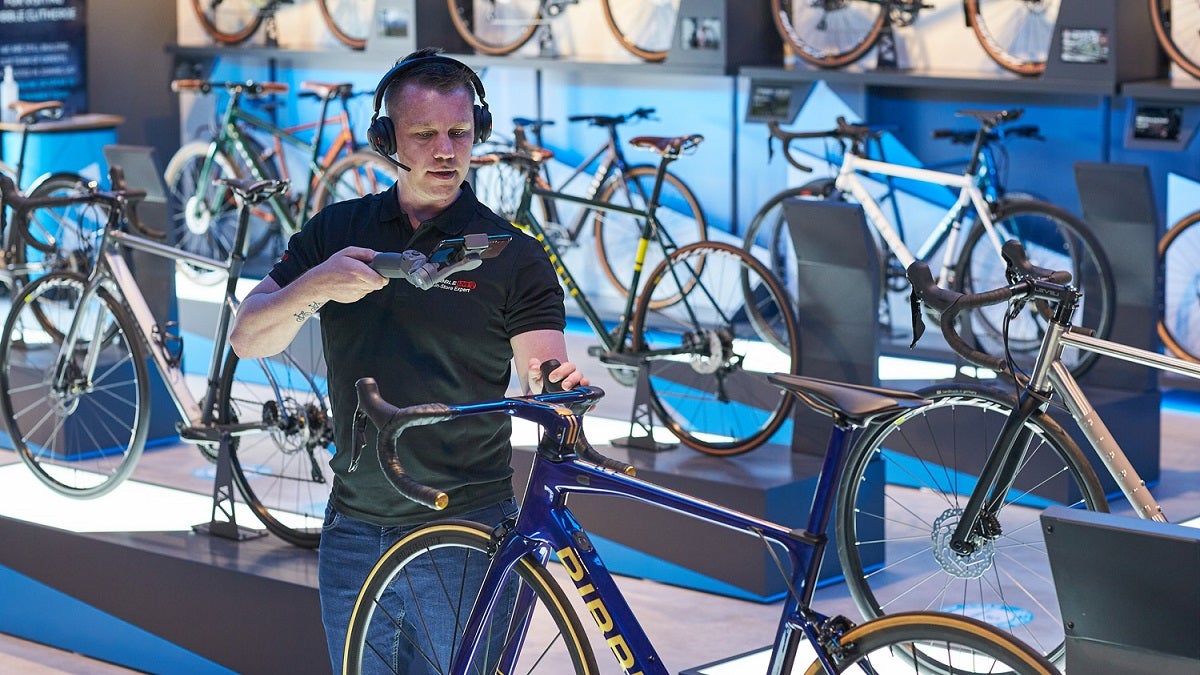
As the UK shakes off its lockdown shackles, the early signs are that many consumers who were obliged to become online shoppers during the Covid crisis are returning to the high street. In January, well over a third (36.3%) of retail sales in the UK were transacted online, according to the Office for National Statistics (ONS). By June, the proportion had fallen to 26.1% – although that was still seven percentage points up on the total for February 2020, the last pre-pandemic month.
For many consumers, the physical shopping experience clearly still has an allure that ecommerce can never replicate. Meanwhile, a significant proportion are reluctant to return to the stores just yet, still concerned about the infection risks. Nonetheless, with Amazon having set such a high bar with respect to convenience, their expectations of all etailers are growing.
Faced with these trends, many brands are having to up their game, especially those that went online to sell directly to consumers during the pandemic. Now that they’re competing with the high street on roughly equal terms again, they are reviewing the customer experience they provide. Some have responded by trying to offer shoppers something more akin to the human interactions they’d expect in a physical store.
Companies that set up chatbots are usually trying to avoid contact with their customers, who find it very frustrating
For Ribble Cycles, the answer has been to ditch unhelpful chatbots on its ecommerce website. The premium bike manufacturer, which also has four physical showrooms, recently added a ‘Call the expert’ button to the site to let online shoppers chat to its staff on a live video link.
“Companies that set up chatbots are usually trying to avoid contact with their customers, who find it very frustrating. That’s why we’re doing the opposite,” says Ribble Cycles’ chief digital officer, Matt Lawson, who reveals that shoppers have reacted positively to this service. Customers who use it are spending 60% more on average than those who don’t.
“When you click the button, you get through to a member of staff who can discuss your needs. This enables you to make a more informed decision when we show you our range of products,” he says. “It’s a way for a D2C brand to offer the human touch that consumers want, so we’re more than just a website to them.”

Personalisation without pushy sales
Selling online typically allows a brand to provide a wider range of products and optional extras than it might have been able to offer as a bricks-and-mortar retailer. This in turn is fuelling a growing trend towards personalisation – something that stairlift company Stannah has recently adapted to.
Research by its customer-experience agency, Zone, found that some buyers, especially the younger relatives of users, consider paper brochures and fabric swatches to be an outmoded way to pick out their preferred stairlift styles, fabrics and finishes.
“Over the past 18 months or so, customers have wanted to reduce the number of home visits we’d make to help them choose a stairlift and then fit it for them,” says Sam Stannah, the company’s head of strategic projects. “We took a risk in hoping that our target demographic would want to browse their options and order online, which meant that we could also help them personalise these choices. We had bets in the office about how long it would be before the first order came in after the service went live. No one predicted that it would arrive within 90 minutes.”
Here and now, without the waste
Consumers’ expectations of online delivery services have become so high that they become disappointed when they can’t get hold of an item within 24 hours of ordering it. While next-day deliveries are possible for many products, it’s not so easy in the case of perishables.
Simon Mellin, founder and CEO of the Modern Milkman, looked at this stocking problem and arrived at what some might consider to be an unorthodox solution: a digital update on the traditional milk round. His firm enables customers to order by 8pm for next-day delivery three times a week. He also promises that waste will be minimised because, in his words, “we’ve all seen the David Attenborough films”.
The company, founded in Colne, Lancashire, in 2018, delivers basic grocery essentials and household goods such as toiletries as well as dairy products. It uses an artificial intelligence system designed by Manchester-based developer Peak to forecast demand and manage stock levels in the most efficient possible way.
“Modern digital customers want the convenience of ordering the night before, but they also want to minimise their impact on the environment,” he says. “The trouble is that giving this choice, with complexities of the food supply chain, makes for a very complicated model. That’s why we’re using AI to predict demand and so ensure that we have enough items in the right place.”
Mellin points to the company’s growth as proof that what some may view as an obsolete business model is well primed to meet consumers’ changing expectations. The Modern Milkman is set to expand from its base in the north of England later this year, with plans to open depots in the Midlands and London.
No more Wismo
Such is the clamour from online consumers for ease of ordering and promptness of delivery that brands are doing all they can to tackle the so-called Wismo problem. This is the acronym for ‘where is my order?’ calls and emails – unwelcome and time-consuming enquiries that, by their nature, mean that a customer is dissatisfied.
The increasing demand from consumers to be kept informed about the progress of deliveries has prompted BT Shop to rethink its customer-experience strategy. Duncan Rutherford, head of ecommerce at the electronics retailer, admits that the business hadn’t been offering sufficiently good service even before the pandemic started. To avoid disappointing customers, it has been working with Californian software firm New Relic to ensure that only products that are in stock are listed for sale on its website.
Given the effect that the pandemic has had on manufacturing and shipping, BT Shop has also adopted a new messaging system that gives early warnings of possible delays in its supply chain.
“Customers rightly expect to be kept fully in the loop at all times. Like a lot of companies, we used to have a gap in the process there,” Rutherford says. “We now take orders only when we know we have stock and we keep them informed about when it’s likely to arrive. Just as crucially, we let them know if there’s going to be a delay.”
He notes that business has improved its performance in fulfilment since adopting its new approach and technology. It used to deliver 90% of orders within three working days. Today, the figure is 99%.
Protecting the vulnerable
The pandemic has been a particularly tough time for the more vulnerable members of society, so it’s unsurprising that several brands have been trying to improve the quality of the experience they offer to such customers.
Chris Pitt, CEO of First Direct, admits that there was a deterioration in service during the first national lockdown because the bank didn’t have enough call-centre staff to cope with the demand. But he adds that the company has since recruited and implemented new services aimed at ensuring that all customers, particularly the most vulnerable, are better served.
“We’ve launched numerous initiatives over the past year, such as further training for reps to support online chats with a referral process to our specialist support team,” Pitt says, noting that it is equipped to help victims of domestic and/or financial abuse. “We have also set up a fraud hub that provides in-depth training for our reps and a specialist aftercare process to support fraud victims.”
The pandemic has, arguably, made shoppers more demanding of brands and retailers than ever before. Businesses that can keep getting the basics of efficient delivery consistently right – offering consumers convenience and keeping them well informed, for instance – should continue to prosper. But those that can also offer a personalised experience – and, crucially, the human touch at a time when such interactions have been so sorely lacking – could well gain a crucial edge over their rivals.

As the UK shakes off its lockdown shackles, the early signs are that many consumers who were obliged to become online shoppers during the Covid crisis are returning to the high street. In January, well over a third (36.3%) of retail sales in the UK were transacted online, according to the Office for National Statistics (ONS). By June, the proportion had fallen to 26.1% – although that was still seven percentage points up on the total for February 2020, the last pre-pandemic month.
For many consumers, the physical shopping experience clearly still has an allure that ecommerce can never replicate. Meanwhile, a significant proportion are reluctant to return to the stores just yet, still concerned about the infection risks. Nonetheless, with Amazon having set such a high bar with respect to convenience, their expectations of all etailers are growing.
Faced with these trends, many brands are having to up their game, especially those that went online to sell directly to consumers during the pandemic. Now that they’re competing with the high street on roughly equal terms again, they are reviewing the customer experience they provide. Some have responded by trying to offer shoppers something more akin to the human interactions they’d expect in a physical store.
